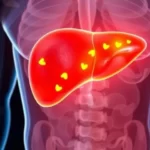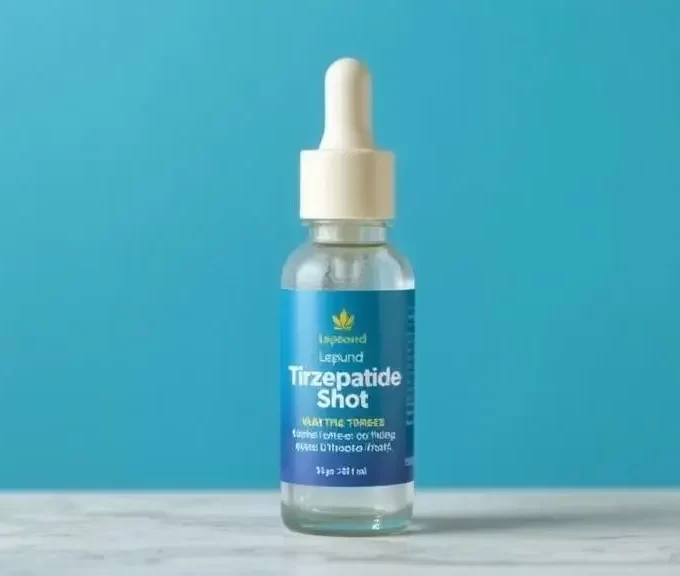Diverticulitis refers to the inflammation or infection of small pouches called diverticula that form in the digestive tract, particularly in the colon. These pouches emerge when the inner layer of the intestine pushes through weak spots in the outer lining. Though this condition is treatable, it can become serious if neglected, especially in older adults or individuals living in industrialized nations where low-fiber diets are more prevalent.
What Triggers Diverticulitis?
The root cause of the increased pressure within the colon. As people age, the walls of the colon thicken, narrowing the intestinal passage. This narrowing hinders the smooth flow of stool, leading to internal pressure buildup. Repeated straining during bowel movements, hard stool consistency, and longer stool transit times further aggravate this pressure.
A low-fiber diet, common in developed nations, is a major contributor. Fiber keeps stool soft and promotes regular bowel movements. Soluble fiber forms a gel-like substance in the digestive tract, while insoluble fiber moves through unchanged. Both types support colon health by preventing chronic constipation, a leading cause.
Symptoms That Demand Attention
Many people may not experience obvious symptoms at first. When signs do appear, they may include abdominal discomfort, bloating, and irregular bowel habits such as constipation or diarrhea. As the inflammation worsens, symptoms become more pronounced and may include fever, vomiting, lower left abdominal pain, nausea, chills, and even visible blood in the stool.
In more severe cases, symptoms escalate to persistent high fever, extreme abdominal pain, painful urination, continual vomiting, ongoing constipation, and rectal bleeding. These warning signs necessitate immediate medical attention.
When to See a Doctor
Even if symptoms appear mild or resolve on their own, consulting a healthcare provider is essential. Symptoms of diverticulitis often overlap with those of other gastrointestinal conditions, making accurate diagnosis critical for effective treatment. Timely intervention can prevent serious complications, including perforation, abscess formation, and peritonitis.
Diagnosis: What to Expect
A typical diagnosis begins with a physical exam, often including a digital rectal examination. Based on the symptoms, your doctor might recommend further tests such as blood panels, abdominal X-rays, CT scans, colonoscopy, or flexible sigmoidoscopy to confirm inflammation and rule out other conditions.
Treatment Approaches: From Lifestyle to Medical Intervention
Lifestyle and Preventive Measures
The foundation of managing and preventing lies in diet and lifestyle adjustments. A fiber-rich diet, adequate hydration, and regular physical activity support healthy bowel movements and reduce intestinal pressure. These habits can help both manage existing diverticula and prevent new ones from forming.
Medical Management
For mild cases, doctors may suggest bowel rest and a temporary liquid diet to allow the colon to heal. Antibiotics might be prescribed if an infection is present. Pain relief medication is used to manage abdominal discomfort.
In moderate to severe cases—especially if there’s fever, persistent pain, or signs of bleeding, hospitalization may be required. Treatment might include intravenous antibiotics, fluid replacement, and strict bowel rest. In cases of complications such as perforation or abscesses, surgical intervention could be necessary.
Is Diverticulitis Genetic?
One of the most commonly searched questions is whether it is hereditary. While genetics can play a role, lifestyle factors like diet and physical activity have a significant impact. Studies show a higher incidence among family members, suggesting a possible genetic predisposition, but the condition is often preventable with proper health habits.
Can Stress Aggravate Diverticulitis?
Stress doesn’t directly cause it, but it can influence gastrointestinal health. Chronic stress affects digestion and bowel habits, potentially leading to constipation or diarrhea. Stress-induced dietary changes or irregular eating patterns may also increase the risk of flare-ups. Many patients report worsened symptoms during stressful periods.
Diverticulitis Tea: A Natural Relief Option
As part of natural management strategies, herbal teas have gained popularity. Teas containing chamomile, ginger, peppermint, or fennel may help reduce inflammation, soothe the digestive tract, and alleviate bloating. While not a cure, these herbal remedies can complement medical treatment and provide comfort.
Homeopathy for Diverticulitis
Homeopathy offers individualized treatment based on the patient’s specific symptoms and constitution. Commonly prescribed remedies include:
- Nux Vomica: Useful for individuals suffering from constipation, abdominal cramps, and irritability.
- Colocynthis: Recommended for severe abdominal pain relieved by pressure or bending forward.
- Belladonna: Indicated when there is sudden and intense pain, along with inflammation.
- Lycopodium: Suitable for people with gas, bloating, and right-sided abdominal issues.
- Arsenicum Album: Given to patients with anxiety, burning abdominal pain, and frequent loose stools.
These remedies should only be used under the guidance of a trained homeopathic practitioner, especially in chronic or recurrent cases.
Homeopathic Remedies: Key Considerations
Homeopathy emphasizes individualized healing by addressing not just the symptoms but the person as a whole. Unlike general treatment approaches, homeopathic medicine takes into account the emotional, physical, and lifestyle patterns of the individual. For instance, someone who experiences frequent anxiety, restlessness, or worsening symptoms during cold weather may benefit from a remedy like Arsenicum Album. Another individual with intense colicky pain relieved by warmth and pressure may respond better to Colocynthis.
It’s essential to recognize that homeopathic remedies do not act as a substitute for conventional treatment in acute or life-threatening conditions. However, when integrated with modern diagnostic and therapeutic measures, homeopathy can offer significant relief, reduce dependency on antibiotics, and promote long-term digestive resilience. Personalized remedies can help restore gut balance, minimize recurrent inflammation, and strengthen the intestinal lining.
Before starting any homeopathic protocol, it is critical to consult with both a homeopathic doctor and a gastroenterologist. This collaborative approach ensures that treatment is safe, well-monitored, and effectively targets both immediate discomfort and chronic triggers.
Conclusion
Diverticulitis is a common digestive condition that can range from mild discomfort to serious complications if untreated. Early recognition of symptoms, lifestyle changes, and proper medical care play a crucial role in recovery and long-term prevention. A high-fiber diet, hydration, and stress management often help reduce flare-ups, while severe cases may need antibiotics or surgery. Complementary approaches like homeopathy can offer added support but should never replace conventional treatment. With timely care, most people manage diverticulitis effectively and maintain a good quality of life.
So, what’s the bottom line? While a diagnosis of diverticulitis can be concerning, from my clinical experience, I can tell you that it is a very manageable condition. The key is to take it seriously. By working with your doctor, making smart dietary choices, and exploring supportive therapies like homeopathy, you can control your symptoms and live a healthy, comfortable life. The most important step you can take is to seek professional guidance and create a personalized plan.
FAQs
1. Is diverticulitis hereditary?
Genetics may play a role, but low-fiber diets and sedentary lifestyles are the primary causes.
2. Can stress worsen diverticulitis?
Yes, stress can aggravate symptoms by disrupting digestion and bowel habits.
3. What tea is good for diverticulitis?
Chamomile, peppermint, and fennel teas may help soothe inflammation and bloating.
4. Are there homeopathic remedies for diverticulitis?
Yes. Remedies like Nux Vomica, Belladonna, and Colocynthis may help based on individual symptoms.
5. What foods should I avoid during a flare-up?
Avoid nuts, seeds, red meat, spicy foods, and anything high in fat or low in fiber.
Medically Reviewed by Dr. Muhammad Usman
References
- Healthline – Diverticulitis: Symptoms, Causes, Diagnosis, Treatment, Surgery. This text defines diverticulitis, its causes, symptoms, and management.
Healthline - Mayo Clinic – Diverticulitis: Symptoms and causes. Offers prevention insights, including fiber intake, hydration, and complications.
Mayo Clinic - Cleveland Clinic – Diverticulitis: Causes, Symptoms & Treatment. Discusses inflammation of diverticula, categorization (acute/chronic, complicated/uncomplicated), and recurrence risk.
Cleveland Clinic - Better Health Channel (Australia) – Diverticulosis and diverticulitis. Covers disease definition, symptoms, and risk factors such as diet, age, and genetic predisposition.
Better Health Channel











